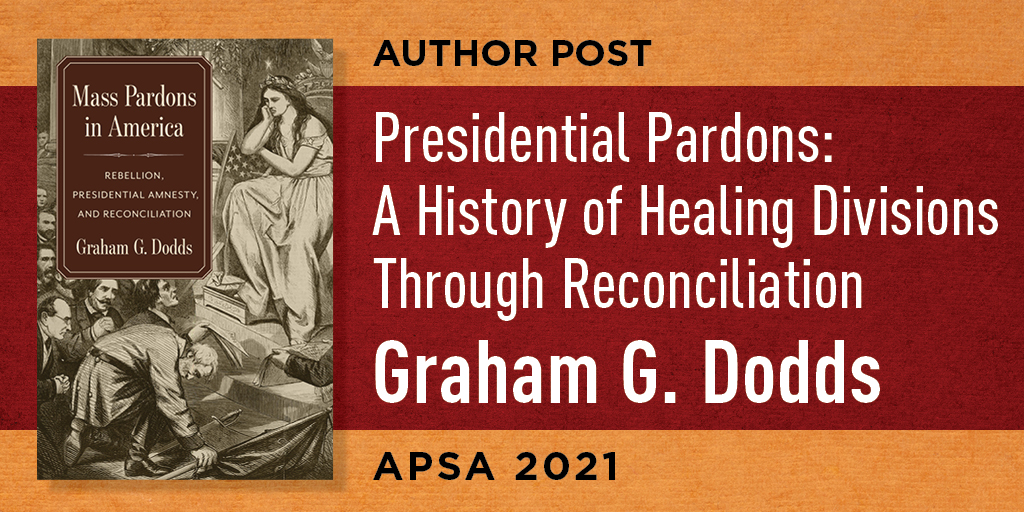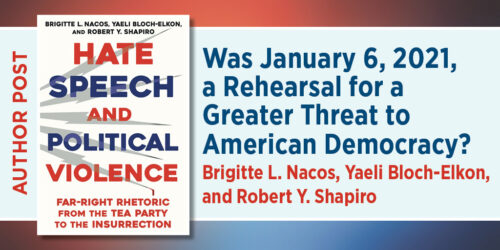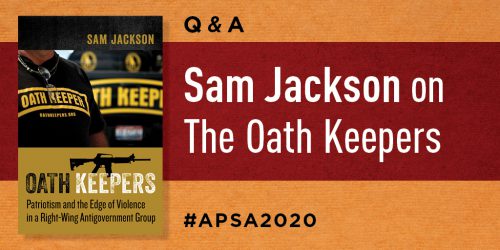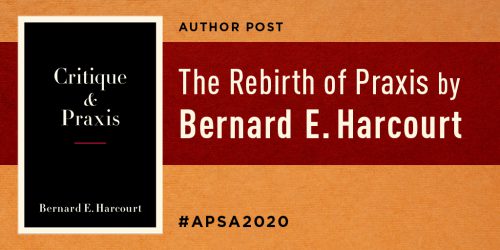Presidential Pardons: A History of Healing Divisions Through Reconciliation By Graham G. Dodds

Before the assault on the Capitol nine months ago, the question of how to deal with a domestic rebellion probably struck most Americans as an antiquarian hypothetical. After all, aside from the Civil War, the country hasn’t had much experience with Americans fighting their own government, has it
It has. Repeatedly throughout American history, substantial groups of Americans have resisted the state in a principled, sustained, and even violent fashion. It’s happened more often than most people realize, and at times both the resistance and the government’s response to it have been stronger and more dramatic than one might think. So far, the state has survived these attacks, but not without significant costs.
And after the dust settled, the nation repeatedly faced the question of what to do with the defeated rebels. Are they just irredeemable traitors who should be punished and forever shunned? Or can they be forgiven? Practically speaking, can large aggrieved groups really be reintegrated into the national community?
Practically speaking, can large aggrieved groups really be reintegrated into the national community?
My book Mass Pardons in America examines these issues by tracing how presidents have issued mass pardons and amnesties to try to reconcile with domestic rebels over the years. It begins by discussing mass pardons as a little-known subspecies of the more familiar presidential power to issue individual pardons. It then considers the purpose and pitfalls of pardons, as well as the history, jurisprudence, and politics of mass pardons. Building on that foundation, most of the book is devoted to a detailed examination of what I take to be the four main cases of presidents using mass pardons for domestic political reconciliation. Each case involves two or more presidents, each of whom issued one or more proclamations of mass pardon or amnesty, either during or after episodes of rebellion and significant resistance.
The first case concerns the armed insurrections in Pennsylvania in the 1790s: George Washington for the Whiskey Rebellion and John Adams for Fries’s Rebellion. The second case is not well known but concerns Mormon insurrectionists in the Utah War—which some historians have dubbed the country’s first civil war—and its aftermath. Altogether, three presidents sought to bring Mormons into the national fold and to ensure that they were covered by the same rights and obligations as other citizens. The third case is the Civil War. If ever the country needed presidential action to overcome a terrible political rupture, the Civil War was it. Abraham Lincoln and Andrew Johnson issued a total of six mass pardons, both during and after the war, gradually moving from conditional pardons for some Confederates to blanket amnesty for all. The fourth case is the only one in anyone’s living memory: Gerald Ford’s clemency and Jimmy Carter’s amnesty for Vietnam War draft evaders, tens of thousands of whom fled to Canada. For each of these complex cases, I discuss the relevant background, how the government responded to the resistance, how presidents crafted their policies of mass pardons, and to what extent those pardons healed divisions and reunited the country
If ever the country needed presidential action to overcome a terrible political rupture, the Civil War was it.
Beyond documenting particular historical episodes of resistance and presidential efforts to achieve reconciliation, this study connects with several significant academic debates. Empirically, it demonstrates that American has had its share of rebellion and resistance and that there is a substantial history of presidents issuing mass pardons. More analytically, it suggests that the dynamics of mass pardons may mimic those of other governmental actions for political reconciliation. It also indicates that unilateral presidential directives can have more significant and more varied rhetorical content than some scholars acknowledge. And it argues that the rhetorical components of such actions can be crucial, as the president seeks to convince members of the aggrieved group that the terms of their expiation are appropriate and to convince the broader national community that the goal of reconciliation is attractive.
Much of this is controversial. In particular, people reasonably disagreed then as now about whether the rebellious groups deserved such generosity and whether governmental actions could really heal such profound divisions. Nevertheless, my study contends that under some circumstances, a well-executed mass pardon can reintegrate rebels and foster reconciliation. This is important not just for understanding America’s past. As the events of January 6 reminded us, American is unlikely to be forever free of rebellion. And, at some point, a president may seek a mass pardon to reconcile with Americans who rebelled against their own country.
Graham G. Dodds is professor of political science at Concordia University. He is the author of Mass Pardons in America: Rebellion, Presidential Amnesty, and Reconciliation.








